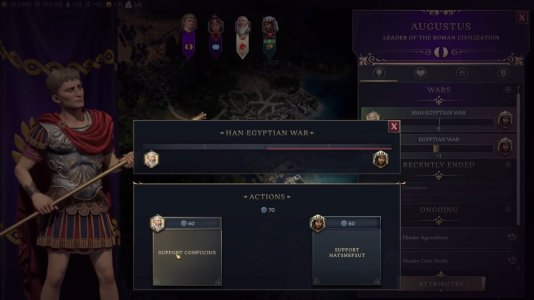Sagax
Emperor
- Joined
- Nov 9, 2013
- Messages
- 1,837
I don’t know if they have increased the tile count of each map size, but if it remained more or less the same as in previous games, then it’s not surprising that the maps feel boring. Between rivers, lakes, cliffs, and mountain ranges, that’s a lot more features that require multiple chained tiles to look and feel interesting - but they can’t go all out, because they compete with the traditional land tiles that you need for districts and buildings.
Not enough real estate, and so every map feature ends up lackluster in an attempt to have a bit of everything.
Not enough real estate, and so every map feature ends up lackluster in an attempt to have a bit of everything.


